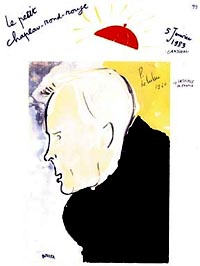
...For humanity taken as a whole, there can be no salvation outside the Church, that this is an absolute necessity, and a necessary means to which there can be no exception.
In this way the problem of the "salvation of unbelievers" receives a solution on the widest scale and at the same time no opening is left for compromising laxity. There is no encouragement to indifference. We see now how the Church can, in the words of a theologian, "be merciful to paganism without diminishing her proper character of being the only vehicle of salvation for souls"; and if it is thought that in spite of all these considerations the formula "outside the Church, no salvation" has still an ugly sound, there is no reason why it should not be put in a positive form and read, appealing to all men of good will, not "outside the Church you are damned", but "it is by the Church and by the Church alone that you will be saved". For it is through the Church that salvation will come, that it is already coming to mankind.
Of course the method of this salvation will differ according to whether the unbeliever has or has not encountered the Church. In the second case the only condition on which his salvation is possible is that he should be already a Catholic as it were by anticipation, since the Church is the "natural place" to which a soul amenable to the suggestion of grace spontaneously tends. The "less" is then sufficient -- to employ the expression for the last time -- not in itself, of it own worth, but insofar as it aspires to the "more", insofar as it is ready to be lost in this "more" directly the exterior obstacles which hide the "more" from it are removed.
--Catholicism: Christ and the Common Destiny of Man, pp. 235-37.

2 comments:
"...not, "outside the Church you are damned..."
Quite a different position than the original Roman Catholic Church which once taught:
"It firmly believes, professes, and proclaims that those not living within the Catholic Church, not only pagans, but also Jews and heretics and schismatics cannot become participants in eternal life, but will depart "into everlasting fire which was prepared for the devil and his angels"
Cantate Domino - Papal Bull of Pope Eugene IV
There has been an attempt to soften the thrust of this doctrine, but it's mostly euphemistic public-relations language that reinterprets infallible statements into pallatable ones.
I wasn't aware that Cantate Domino is considered infallible. Apparently the authors of the Catholic Catechism weren't aware of this either, nor the Pope that gave it his imprimatur.
Post a Comment